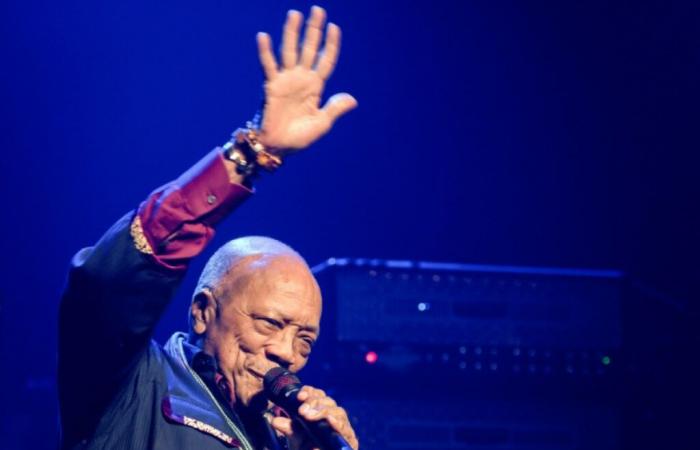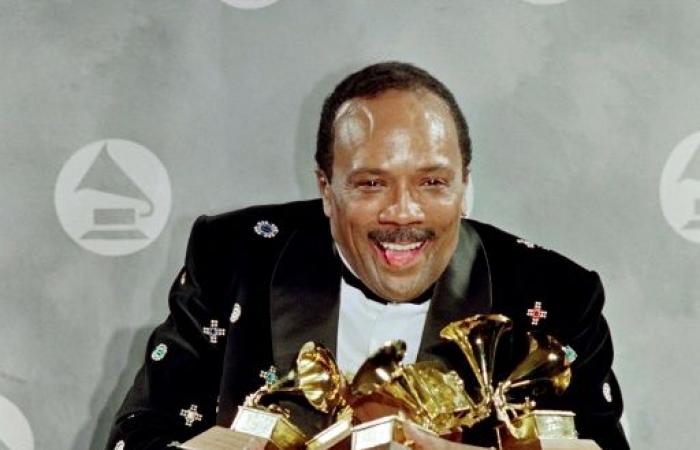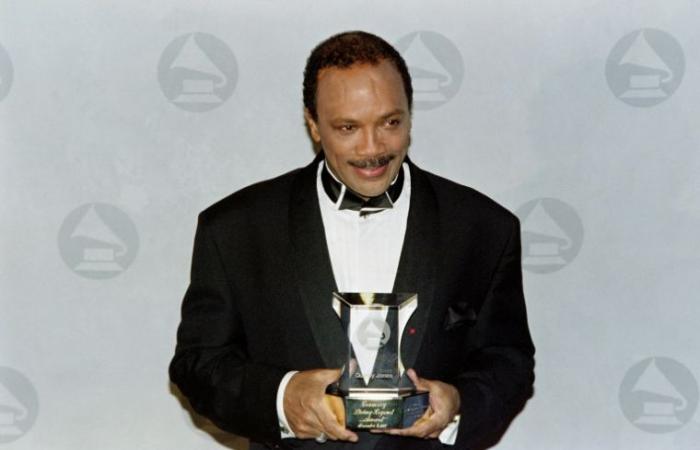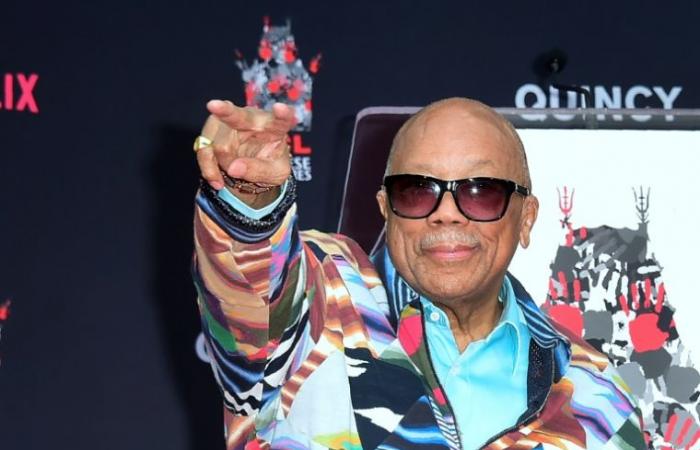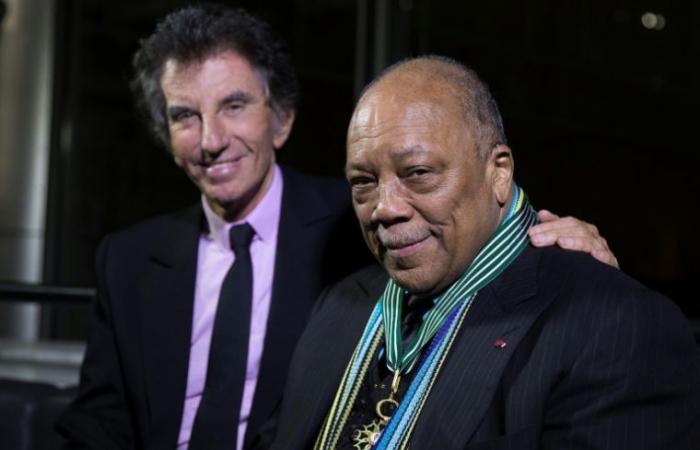American producer Quincy Jones at the 53rd Montreux Jazz Festival, June 30, 2019 in Montreux, Switzerland (AFP / FABRICE COFFRINI)
Maker of global hits from Frank Sinatra to Michael Jackson, the American producer and jazz trumpeter Quincy Jones, whose death at the age of 91 was announced on Monday, marked his era by establishing himself as a “genius” composer, both multi-awarded career.
In an environment where producers most often work in the shadows, the musician, composer, arranger and producer is one of the few to have stepped into the spotlight, standing out as a reference in American Music during the second half. of the 20th century.
He “passed away peacefully” at his home in Los Angeles in the presence of “his children, his brothers and sisters and his close family”, announced his press secretary Arnold Robinson in a press release.
“While this is an incredible loss for our family, we celebrate the great life he lived and know there will never be another like him,” his family said.
“With you, life swinged, it jazzed, you were joy and rhythm, you were a genius!”, reacted on X the French music hall artist Line Renaud, who made a career across the Atlantic in the years 1960.
American composer Quincy Jones won six Grammy Awards on February 29, 1991 at Radio City Music Hall in New York (AFP / Timothy A. CLARY)
“Rest in peace,” American guitarist and songwriter Nile Rodgers wrote on Instagram. “Quincy was not only a legend; he was a source of inspiration, a precursor and a true genius,” said French star DJ David Guetta on the same social network.
The composer's life flirts with the beautiful stories of Uncle Sam: born in 1933 in a Chicago city hit by the Great Depression, to a mother suffering from schizophrenia and a carpenter father, Quincy Delight Jones Jr., from his real name, saw himself becoming a gangster but came across a piano at the age of 11. It's a revelation, the first note of his life as an artist.
– “Breaking boundaries” –
In his memoirs, he describes his meeting with Ray Charles as a “blessing”, as this elder, with whom he interacted as a teenager in local clubs, guided him in learning music.
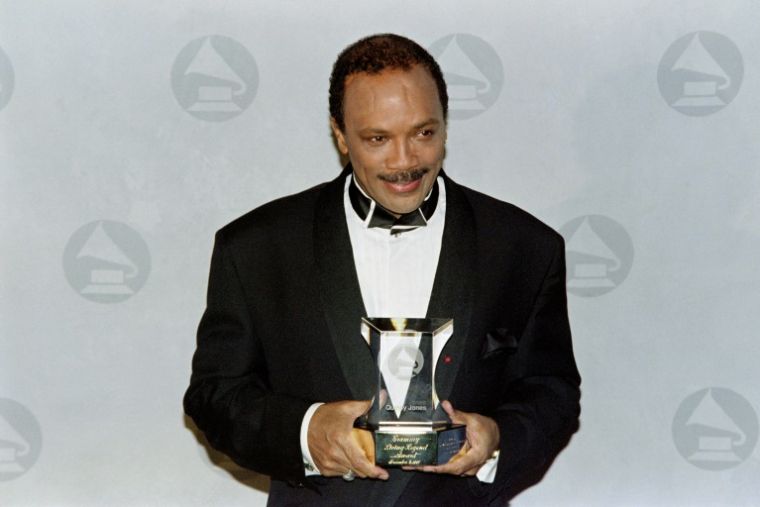
American jazz composer Quincy Jones receives a Grammy Legend Award on December 5, 1990 in New York (AFP / MARIA BASTONE)
Without limiting himself in genres – jazz, soul, disco, pop or funk -, Quincy Jones defines the new score of international variety that makes you dance, from “Give me the night” (George Benson) to his own titles “Ai no bullfight” or the instrumental “Soul Bossa Nova”, and collaborated closely with Frank Sinatra.
“Quincy Jones loved to surprise and break boundaries. Style, age or nationality didn't matter, only the quality of the music mattered. Such open-mindedness was rare in the industry,” the artist said on Instagram. Montreux Jazz Festival (Switzerland), which the musician never missed.
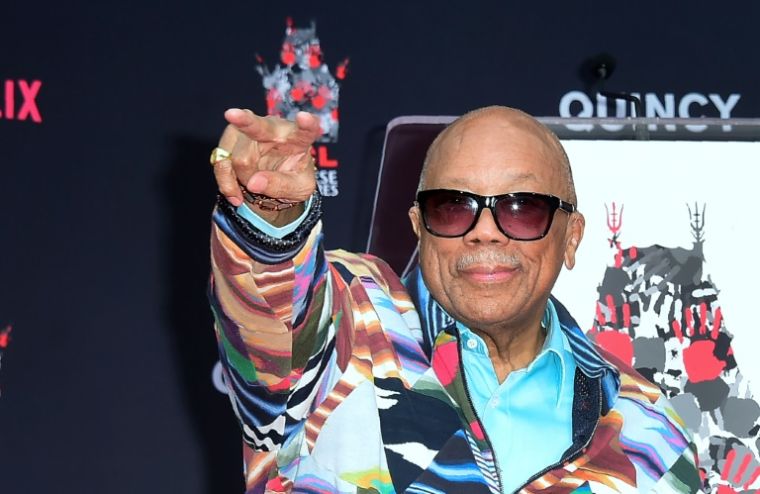
American composer and producer Quincy Jones during his hand and foot print ceremony at the TCL Chinese Theater in Hollywood, November 27, 2018 in California (AFP / Frederic J. BROWN)
His CV was already well-stocked when he experienced the definitive turning point in his career, in 1978, thanks to the meeting with Michael Jackson, who sought to explore new sounds.
The chemistry between Jackson, Jones and sound engineer Bruce Swedien is more than just sparks.
It spawned the three best albums of the “King of pop”: “Off the wall” (1979), “Bad” (1987) and especially “Thriller” (1982), the best-selling album in history, more than 100 million copies.
– 28 Grammy Awards –
An eclectic and hard worker, Quincy Jones has released more than 400 records and won 28 Grammy Awards, achieving the status of living legend.
In 1957, he moved to Paris, meeting jazzmen and stars of the time like Charles Aznavour.
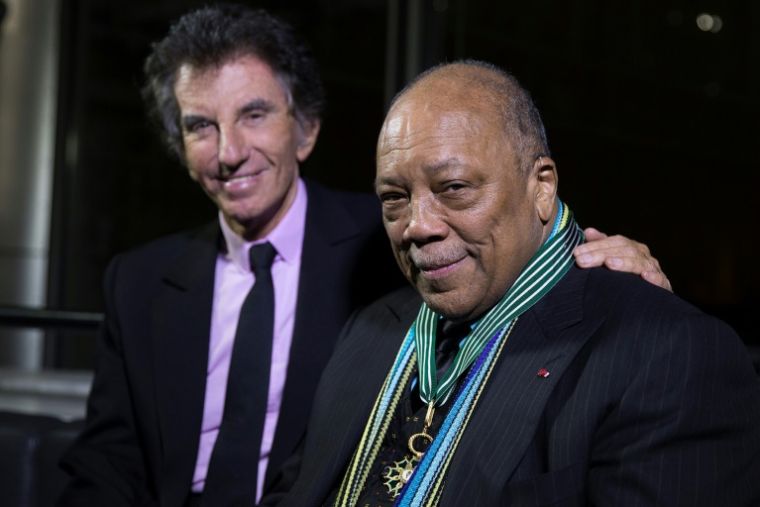
American musician and producer Quincy Jones made Commander of Arts and Letters by the Minister of Culture Jack Lang (l), October 6, 2014 in Paris (AFP / Joël SAGET)
He was also made Commander of Arts and Letters in 2014 by the former Minister of Culture Jack Lang, who praised this “guardian of tradition and herald of new trends”.
That same year, “Paris”, the third album by French singer Zaz, was released, three of which were produced by the maestro.
Prolific in music and in family – he had seven children – “Q”, the nickname of this polyglot jack-of-all-trades, also turned to film production (“The Color Purple” by Steven Spielberg, 1985) and series (“The Fresh Prince of Bel-Air”, which revealed Will Smith).
As a good conductor, he brought together a panel of stars, from Bob Dylan to Cyndi Lauper, for the successful charity song “We are the world” (1985), recorded by the “supergroup” “USA for Africa” and dedicated to the fight against famine in Ethiopia.
“No one has had a career as incredible as Quincy Jones,” responded Elton John on social networks. “He played with the best and he produced the best. What a guy.”

